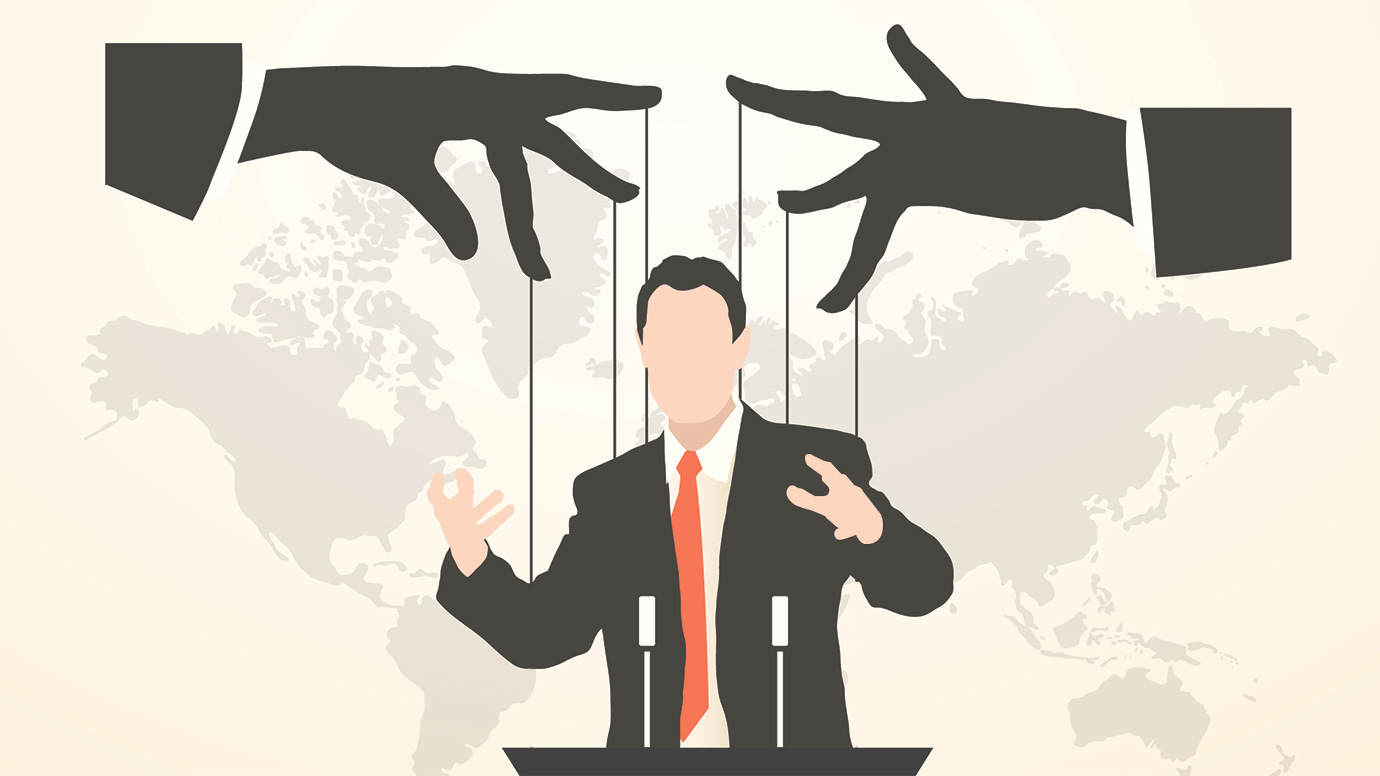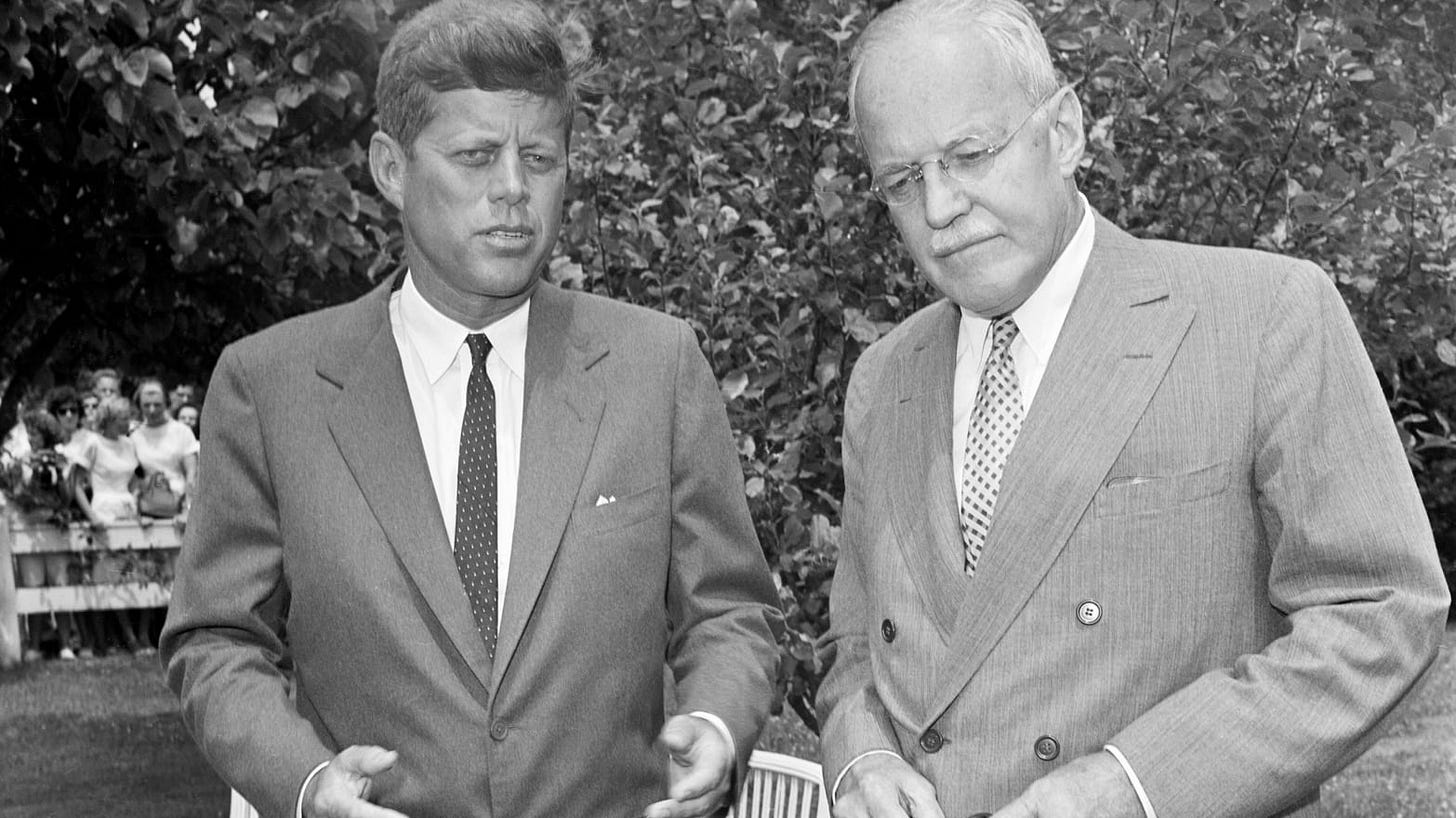Assassinating World Leaders: An American Pastime
Since asserting itself as the global superpower post WWII, America has 'taken out' anyone who gets in the way of imperial interests.
Setting the Stage
The world’s a stage, and everyone has a role to play. Actors step into the spotlight, bringing a narrative to life that captivates the crowd. While the audience knows it’s just a performance, they willingly suspend their disbelief, losing themselves in the emotional pull of the story.
The crowd doesn’t worry about who financed the show, who assigned the roles, who wrote the script, or who designed the set. All they care about is escaping reality. Although, when an actor slips up, the audience snaps back to reality. This is a big problem for those directing and funding the production. If the audience stops buying into the story, they’ll demand refunds or avoid future shows. This leads to an overhaul—actors are fired, scripts are tweaked, and sets are reimagined, all behind the curtain.
When casting changes are made on the political stage, things often get gruesome.
When Actors Go Off Script
Charles de Gaulle was a formidable statesman, remembered for his fierce loyalty to France. As the architect of the Fifth Republic after WWII, he transformed France’s political landscape, strengthening its global influence. During this process, he made many enemies who would go on to try and take his life.
Allied leaders (from left) French Gen. Henri Giraud, U.S. Pres. Franklin D. Roosevelt, French Gen. Charles de Gaulle, and British Prime Minister Winston Churchill at the Casablanca Conference, January 1943.
While America was establishing itself as the global superpower post-WWII, de Gaulle stood firm against U.S. imperialism and the influence of American oligarchs. Skeptical of NATO, viewing it as a tool for American control over European defense, he withdrew France from its integrated military command in 1966, though France remained politically aligned. De Gaulle aimed for a “Europe of nations” independent of both American and Soviet influence, forging ties with developing countries. This move didn’t sit well with America’s Council on Foreign Relations, which included prominent figures from Wall Street, Washington, and the military-industrial complex.
Fearing for his life, de Gaulle and his inner circle had to look behind the curtain, where intelligence agencies, political extremists, and criminals intersected. This led de Gaulle to develop a deep understanding of security services, unlike any other Western leader at the time. When his advisor, Alain Peyrefitte, asked about JFK’s assassination, de Gaulle made it clear that he believed Kennedy was a victim of the same American intelligence agencies that had repeatedly targeted him.
U.S. President John F. Kennedy (Left) with CIA Director Allen Dulles (Right)
When asked if he thought Lee Harvey Oswald was merely a fall guy, de Gaulle responded:
“Everything leads me to believe it. He had a subpar intellect and was an exalted fanatic—just the man they needed. He probably became suspicious and they wanted to kill him on the spot. Unfortunately, it didn’t go as planned. Security forces worldwide are the same when doing dirty work. As soon as they wipe out the false assassin, they declare the case closed, no further action needed now that the guilty one is dead.”
De Gaulle understood the mechanisms of power at play when JFK was killed and why Americans never got to see behind the curtain:
“America is in danger of upheavals. But you'll see. They will close ranks. They'll do everything to stifle any scandal. They will throw Noah's cloak over these shameful deeds to not lose face globally, to avoid riots, to preserve the union and avoid a new civil war. They don’t want to know, and they won’t allow themselves to find out."
A Recurring Theme
History is cyclical, with empires rising and falling. However, one thing remains constant throughout this process, there are always power hungry psychopaths who will do anything to maintain or seize power.
Carl Jung, the founder of analytical psychology, had a close view of global power plays. Living in Europe during WWII, his work attracted many powerful figures. He met both Hitler and Mussolini and provided therapy to Mary Bancroft, the mistress of Allen Dulles, the longest-serving CIA head.
Allen Dulles’ wife, Clover (left) and Mary Bancroft formed a lifelong bond when they met in Switzerland during the final days of the war. The women took to calling Dulles—the cold, relentless man who dominated their lives—“The Shark.”
Dulles was not only Mary’s lover but also her spy chief. He assigned her to keep a close eye on the Nazi double agent Hans Bernd Gisevius, and Mary got close to him by helping Gisevius write his memoirs. However, things quickly became complicated. Gisevius started falling for Mary, inviting her on a romantic retreat, but she turned him down. Dulles became furious, snapping, "Why the hell didn't you go? It might have been very interesting."
Mary, whether out of loyalty or love for Dulles, didn’t want to disappoint him. After reconsidering, she accepted Gisevius's offer and developed an intimate relationship with the man who would become one of the principal conspirators in the July 20, 1944 bomb plot against Hitler.
Finding herself in a love triangle with some of the most dangerous men on the planet, Mary confided in Jung about the emotional chaos she was experiencing. The psychologist noticed a common theme among Mary’s lovers, telling her she would always attract “extremely ambitious men interested in gaining power for themselves.” Jung added that these types of men, whether Gisevius, Dulles, or Hitler, “were like lions fighting over a hunk of raw meat.”
Establishing American Dominance
In 1945, Allen Dulles became President of the Council on Foreign Relations (CFR). Meeting in a soundproof room in New York City, this group of elites shaped U.S. foreign policy. The CFR attracted statesmen like George W. Bush, Henry Kissinger, and Nelson Rockefeller, along with businesses like ExxonMobil, Chase Manhattan Bank, and Boeing.
If politicians are actors, with bankers and businessmen financing the show, Allen Dulles was the casting director. When someone didn’t follow the CFR’s script on the global stage, Dulles’s Agency would fire the rebellious actor—usually with a bullet—and recast the role. However, death by gunshot wasn’t always the method. A CIA manual titled “A Study of Assassination” advised that “the simplest tools are often the most efficient means,” listing everyday objects like a hammer, axe, or kitchen knife. The manual warned, “Murder is not morally justified. Persons who are morally squeamish should not attempt it.” In other words, if you’re not a cold-blooded psychopath, maybe working at the CIA isn’t for you.
Allen Dulles in his office
From the Agency’s formation in 1953 to JFK’s assassination in 1963, Dulles’s clandestine operations wreaked havoc globally. The CIA overthrew regimes worldwide to maintain American dominance, targeting any leader who threatened U.S. military or economic interests.
Keep reading with a 7-day free trial
Subscribe to Blendr News to keep reading this post and get 7 days of free access to the full post archives.









